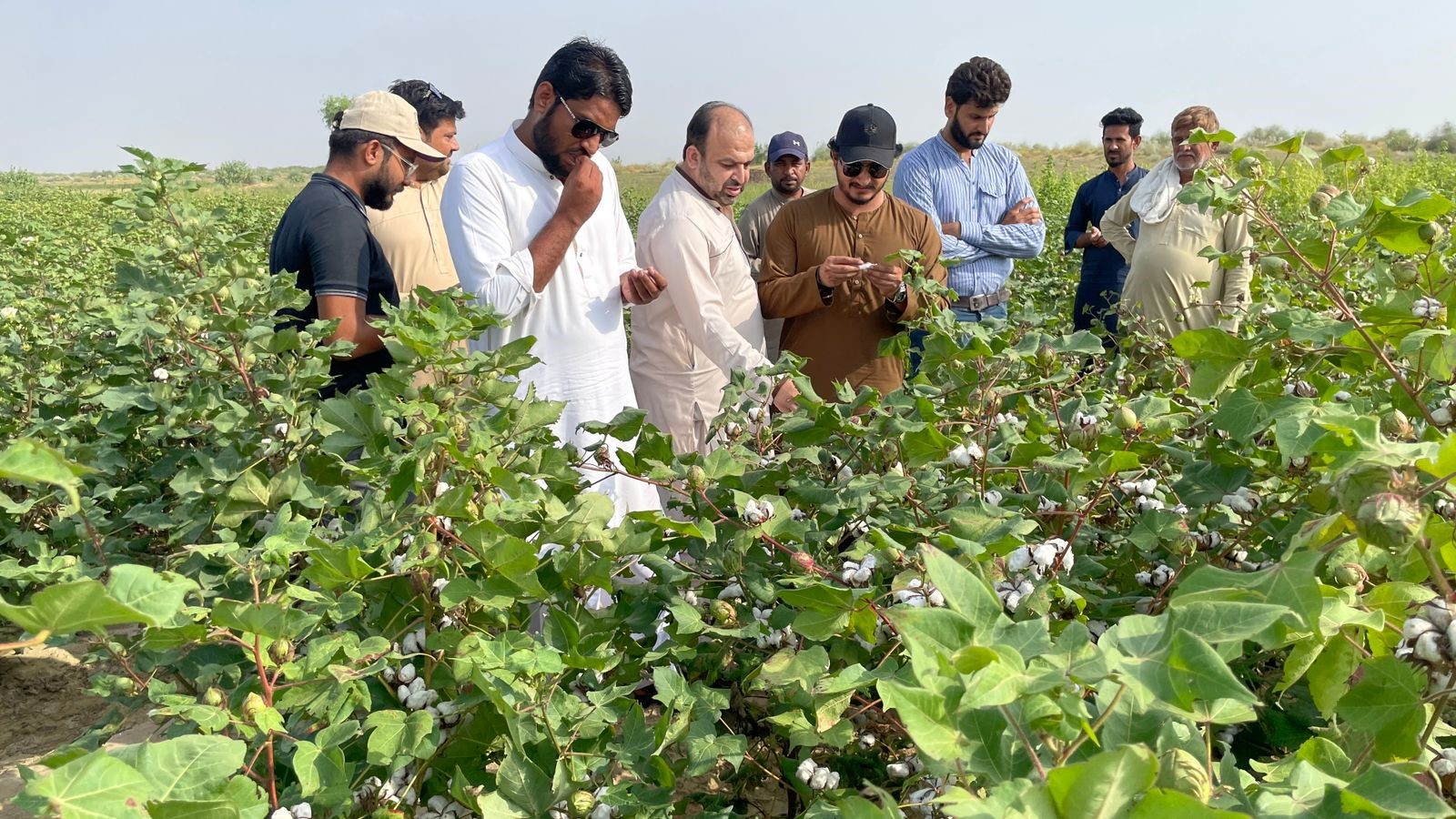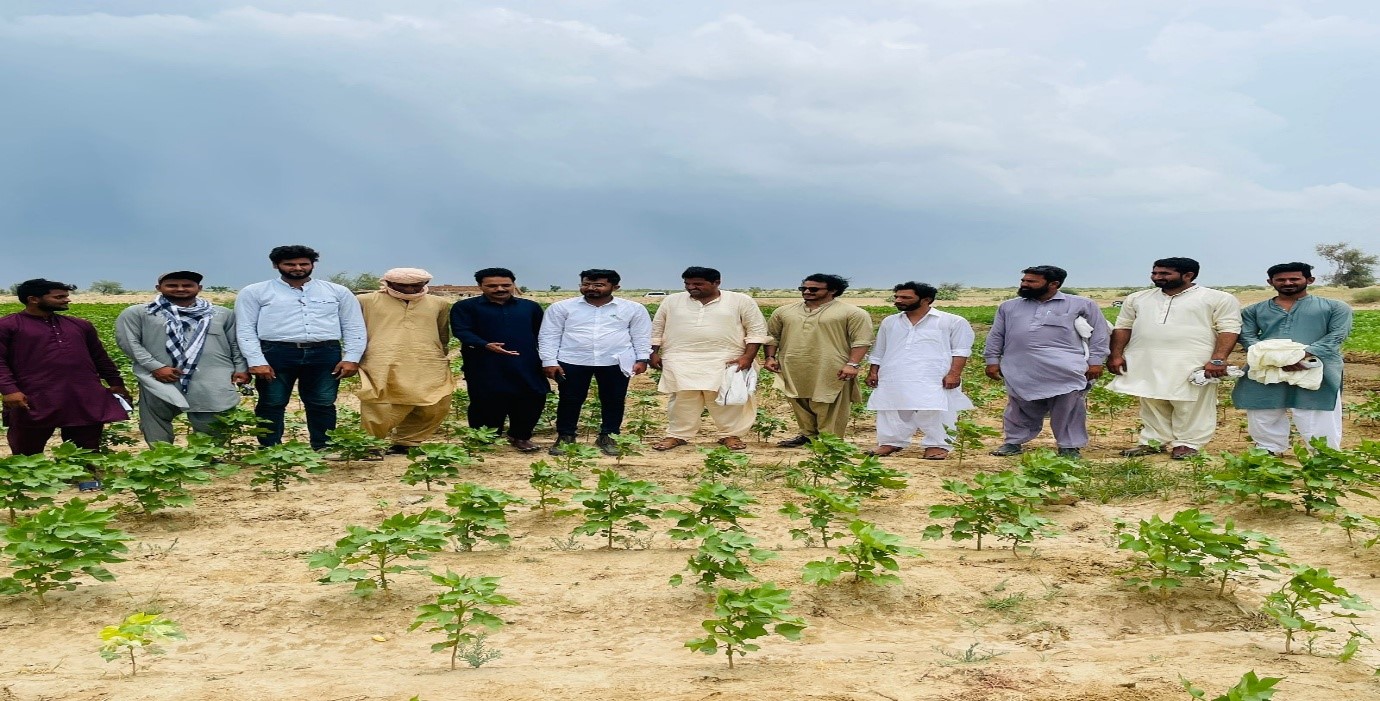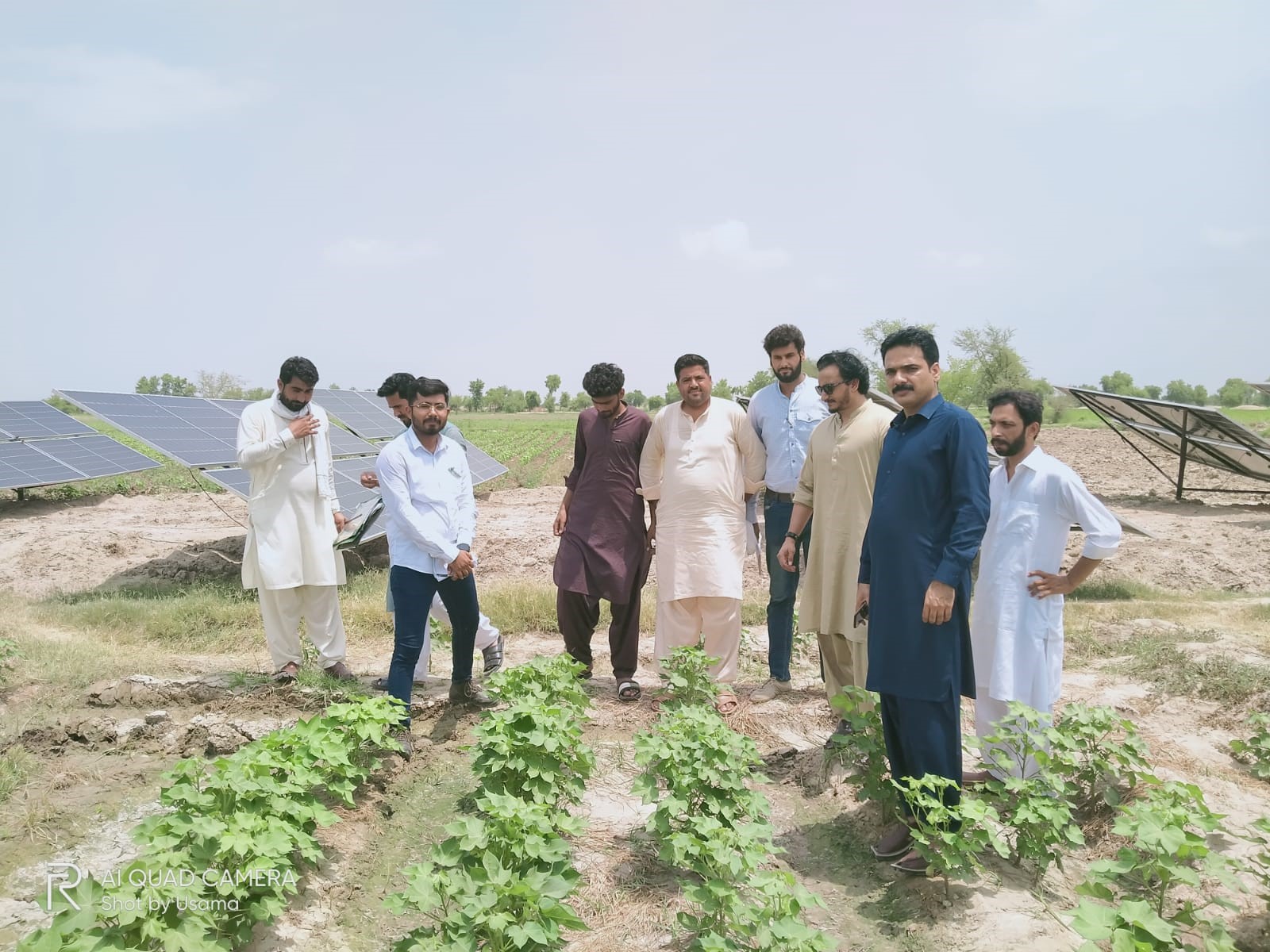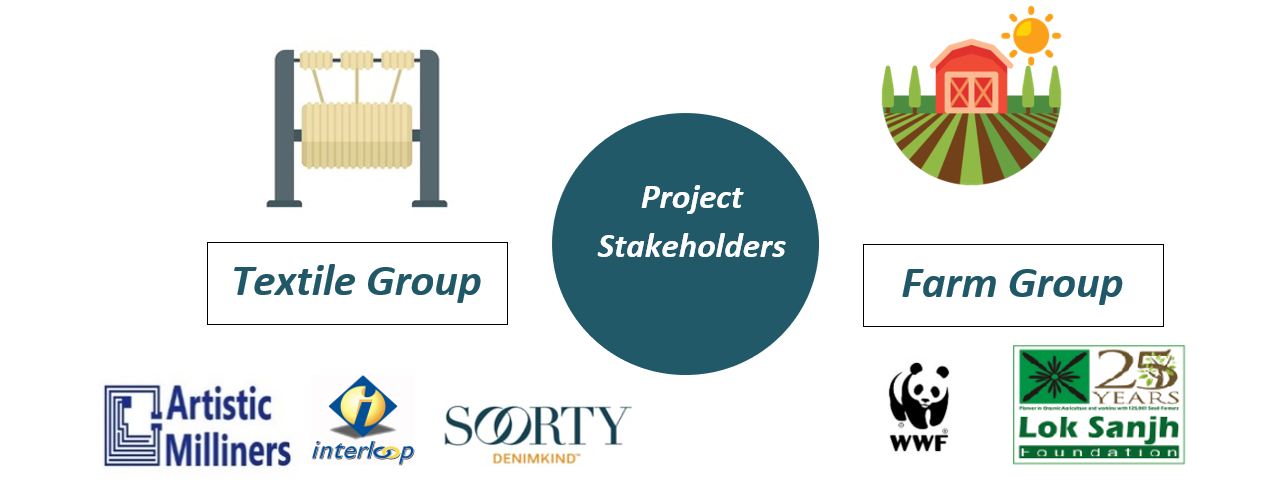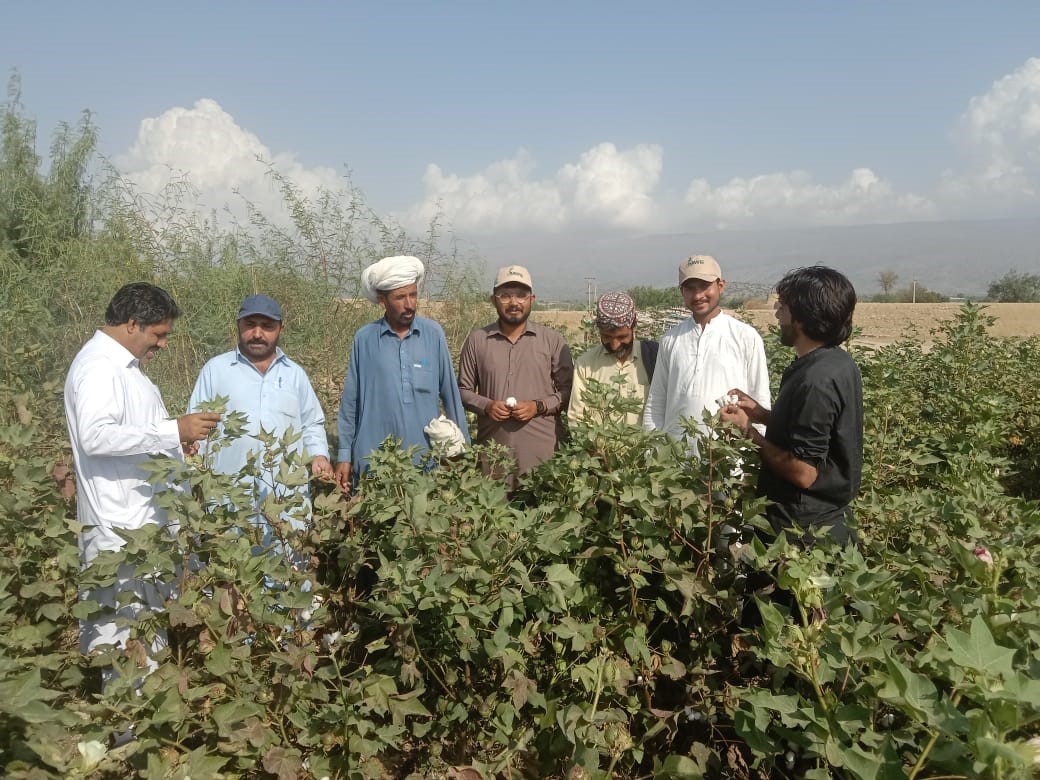Cotton, a crop integral to fulfilling humanity’s food, feed, fiber, and energy needs, sees Pakistan as its 5th largest global producer. Despite this, cotton cultivation in Pakistan has faced stagnation and decline over the last three decades, inadvertently paving the way for organic cotton (OC) promotion. With global organic cotton comprising less than 1% of total production, the OC market presents a significant growth opportunity, evidenced by its forecasted expansion from US$ 637 million in 2021 to US$ 6,730.9 million by 2028, at a 40.0% CAGR.
Pakistan’s entry into organic cotton production in 2019, supported by international partnerships, targets untapped potential in regions like Baluchistan to become an organic hub without affecting conventional cultivation. The transition to organic practices, backed by major stakeholders including the government, aims at overcoming certification complexities and scaling production, despite the technical and logistical challenges inherent in maintaining organic standards and ensuring non-GMO seed availability.
In response to the increasing market demand for Organic cotton and its purity issues, the Organic Cotton Accelerator (OCA) has taken proactive steps by launching the Seed Assurance Program in collaboration with SAWiE for the execution of OCA standards & guidelines. The primary objective of this program is to address and mitigate the risks of GMO contamination within the organic cotton value chain, thus safeguarding the purity of organic cotton seeds through training and capacity building of stakeholders especially seed companies and farm groups.
SAWiE’s implementation of the Seed Assurance Program has adopted a comprehensive approach. It involved, establishing a very close cooperation with both seed producers and farming groups, guiding them in adhering to the Non-GM Cotton Seed Production Guidelines (NGCSPG). This program encompasses various aspects, including conducting gap analyses, developing systems for mapping GMO contamination risks, establishing seed traceability mechanisms, and enhancing farm management practices. Furthermore, it actively supports seed companies in the integration of these systems, offering specialized training and technical assistance to ensure strict adherence to non-GM standards.
SAWIE set a strategic partnership with the Organic Cotton Accelerator (OCA) by implementing two major initiatives to transform Pakistan’s organic cotton sector started in 2023. The collaboration introduced two groundbreaking projects: the OCA Seed Assurance Program and the OCA Seed Trial Network. Addressing the critical shortage of high-quality, non-genetically modified (non-GM) organic cotton seeds, these initiatives are keystones in the quest to scale up and sustain organic cotton production.
Through this Seed Assurance Program, OCA and SAWiE aim to provide a robust framework for maintaining the purity of organic cotton seeds in Pakistan to meet the demands of a discerning market seeking non-GM cotton products.
Objectives
With the ambition to improve organic cotton farming, these projects sought to directly test a variety of organic cotton seeds on farmers’ fields. The initiative aimed not only to gather essential crop performance data but also to identify superior cultivars suitable in specific areas.
The primary objectives of the Seed Assurance Program are the following.
- Enhance the integrity and visibility of organic cotton seed production through monitoring and support.
- Develop a system for monitoring and preventing GMO contamination from production to processing and packaging of seeds.
- Improve compliance and certification readiness of seed-producing organizations.
- Emphasize the seed producer’s adherence to the Non-GM Cotton Seed Production Guidelines (NGCSPG)
- Identify areas requiring further improvement by the selected seed companies.
Activities and Implementation
The OCA-backed projects covered three major agricultural regions in Punjab and Baluchistan Pakistan, the initiatives focused on the:
- Seed Trials: Testing a range of organic seed varieties for resilience, yield, and Fiber quality under diverse conditions. Six different varieties were trialed, showcasing a potential yield for the top-performing seeds.
- Farmer Training Programs: More than 50 farmers received comprehensive training in organic farming practices, seed selection, and sustainable cultivation methods, aiming to increase organic cotton production.
- Organic Stakeholder Engagement: Collaborating with over five organic cotton seed companies shortlisted from a list of six companies, cotton ginning factories, textile manufacturers, and other key stakeholders including NGOs, international partners, provincial and federal govt research organizations to foster a supportive ecosystem for organic cotton.
Impact and Outcomes
Both the projects of the OCA Seed Assurance Program and the OCA Seed Trial Network were carried out in two locations in Baluchistan and one location in Punjab. The impact of the project is as follows
No of Farmers trained: 50
No of Seed companies trained: 5
Stakeholders engaged: 20
- Fort Abbas: Addressed plant mortality by facilitating dialogue among farm partners and deploying field teams for ongoing monitoring, resulting in a 30% reduction in crop losses.
- Kohlu: Overcame germination challenges through agronomic expertise and GMO testing, enhancing seed germination rates by 25%.
- Khuzdar-Naal: Implemented effective pest management strategies, including the use of eco-friendly sprays, which decreased pest-related crop damage by up to 40%.
Seed Companies | Location | Seed multiplication Plots | |
1 | Hyacinth Seeds | Uthal, Baluchistan | Uthal |
2 | Wholesome Seeds | Kohlu, Baluchistan | Muzaffargarh |
3 | Musab Seeds | DG khan | Rukni, Baluchistan |
4 | Plazma Seeds | RYK | RYK |
5 | Sakhawat seeds | RYK | RYK |
Challenges and Strategies
Despite facing initial delays due to political unrest, difficulties in sourcing non-GM seeds, and climatic challenges, the initiatives thrived by:
- Engaging with a wide network of organic seed producers to diversify seed supply.
- Introducing stringent seed testing procedures to ensure the use of non-GM seeds.
- Promoting Integrated Pest Management (IPM) practices, significantly reducing the need for chemical pesticides.
Recommendations for Future Initiatives
Based on the insights gained, several strategies are recommended for enhancing future organic cotton initiatives:
- Early Planning and Engagement: Begin project activities at least three months before sowing to avoid delays.
- Strengthened Research Collaborations: Partner with research institutions for the development of resilient non-BT cotton varieties.
- Expanded IPM Support: Increase farmer training on eco-friendly pest control methods.
- Enhanced Digital Tools: Develop and utilize digital platforms for improved data collection and analysis, aiming to streamline operations and decision-making processes.
Conclusion
The collaboration between SAWIE, OCA, and their partners including WWF, Lok Sanj, Punjab and Baluchistan Agriculture Departments has significantly advanced the organic cotton sector in Pakistan. Through targeted interventions and the adoption of best practices, this initiative has laid a foundation for a sustainable, resilient, and economically viable organic cotton industry. The success of these projects underscores the importance of strategic partnerships, comprehensive training programs, and the development of supportive ecosystems, promising a brighter future for Pakistan’s cotton industry and contributing to global organic cotton production.

